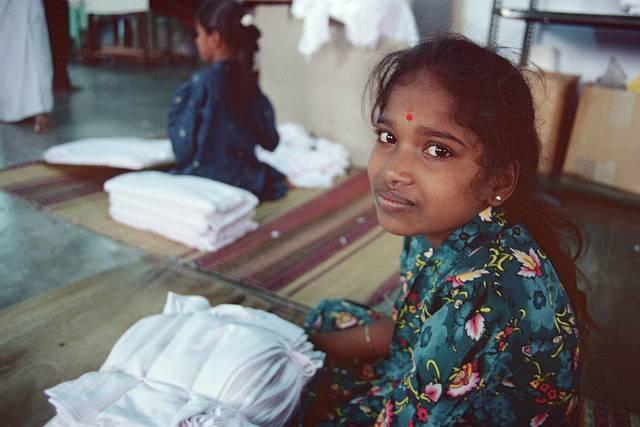
Last week during a global forum in Australia, government, private sector and civil society representatives from 48 countries agreed to take more steps to stamp out slavery, forced labor and child labor worldwide.
The 15-year old Bali Process on People Smuggling, Trafficking in Persons and Related Transnational Crime (often referred to as the "Bali Process”) held a high level meeting in the western Australian city of Perth in an attempt to develop global standards for more ethical and transparent labor practices within companies’ global supply chains.
According to Reuters, participants including retailing giant Walmart, the Japanese conglomerate Mitsui and Chinese e-commerce website JD.com participated in the forum, and agreed to take more action in order to eliminate modern slavery.
Many public companies, including Walmart, describe anti-slavery policies within their codes of conduct or their ethics statements. Walmart, for example, requires employees who witness any evidence of slavery, forced labor, human trafficking or child labor to report any abuses the company’s global ethics team. Mitsui is among many companies that issue regularly updated statements on human rights that covers how they approach accusations of slavery occurring within their supply chains.
But despite these companies’ commitments and efforts, slavery continues to entrap millions of citizens worldwide. Most national governments have laws against slavery and bonded labor - but most undertake little effort in ensuring that private companies are compliant on this front. The Asia-Pacific region in particular is losing the battle in the global struggle against slavery and forced labor. To that end, a coalition of business leaders, philanthropists and activists based in Australia has mined multiple sources of data in estimating the number of people working and living in these conditions worldwide as it leads the fight against 21st-century slavery.
The Walk Free Foundation is among many international organizations that has been proactive on confronting this human rights crisis in recent years. One of the Foundation's projects, The Global Slavery Index, has concluded that approximately 30 million people, two-thirds of the total number of people worldwide who work in conditions amounting to slave or forced labor, are located in the region that spans from Afghanistan to New Zealand. The roughly 45 million people the Index has documented and concluded were slaves or forced laborers comprise a 25 percent increase from a report it issued in 2014.
Organizers of the Bali Process say they are strengthening cooperation on anti-slavery efforts worldwide, while trying to find standardized practices that can make it more seamless for public officials and corporate employees to identify and root out slavery. But as the Reuters report covering last week’s meeting pointed out, last week’s forum in Perth did not result in any clearly defined action plans. And governments are not making much headway, either: the Guardian criticized the Australian government for expressing a commitment to fight slavery yet did establish any time frame for when any national legislation would pass. The fact that actions are not matching words gives the private sector a huge opening to take a united stand against slavery.
The Bali Process has issued more than their fair share of fact sheets, curricula, frameworks and guides in an attempt to educate companies and policy makers on how to halt these abuses. But based on the stubborn persistence of these practices worldwide, the statements and reports released time after time clearly have not achieved enough. Whether the recent increase of 9 million people now enduring slavery is due to horrid business practices or better methodologies used to identify them does not matter.
What does matter is that the evidence suggests this problem is only getting worse across the globe. The political meltdown in Brazil is threatening to ruin 20 years of progress the country has made on eliminating forced labor. And here in the U.S., evidence of human trafficking and bonded labor in manufacturing, agriculture and the garment sector - as well as the sex trade - shows that slavery does not discriminate against borders. Nor is this simply a problem relegated to developing countries. Nevertheless, the Walk Free Foundation insists it knows where the world can start. "In order to address the crime of modern slavery, it is essential that we focus on global supply chains to bring about long-lasting impactful change," the Foundation says.
Image credit: International Labor Organization/Flickr

Leon Kaye has written for 3p since 2010 and become executive editor in 2018. His previous work includes writing for the Guardian as well as other online and print publications. In addition, he's worked in sales executive roles within technology and financial research companies, as well as for a public relations firm, for which he consulted with one of the globe’s leading sustainability initiatives. Currently living in Central California, he’s traveled to 70-plus countries and has lived and worked in South Korea, the United Arab Emirates and Uruguay.
Leon’s an alum of Fresno State, the University of Maryland, Baltimore County and the University of Southern California's Marshall Business School. He enjoys traveling abroad as well as exploring California’s Central Coast and the Sierra Nevadas.














